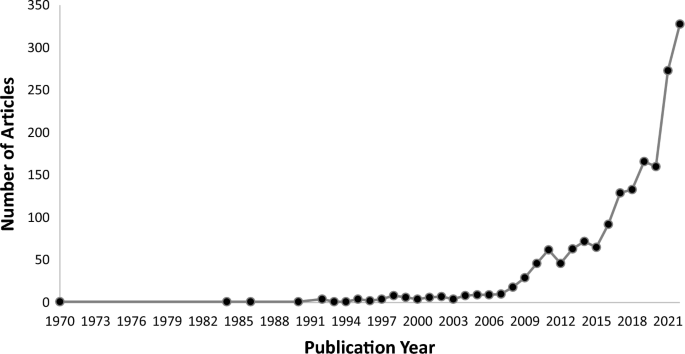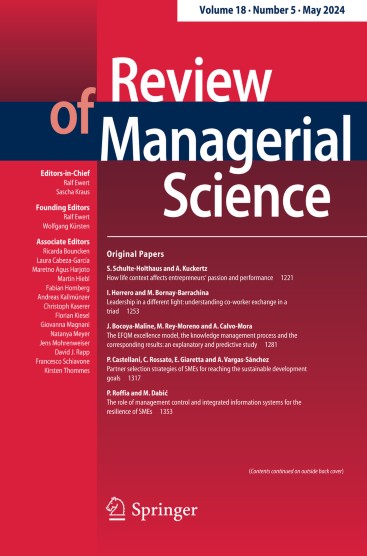解开危机创新的复杂性:对生态系统层面对外生冲击的反应的全面回顾
IF 9.6
3区 管理学
Q1 MANAGEMENT
引用次数: 0
摘要
危机时期的创新在最近的事件之后经历了大量的研究。这些研究分散在广泛的领域,并没有充分反映早期的研究或先前的危机。为了鼓励相关文献流的融合,我们将危机创新定义为一个生态系统层面的过程,以满足外生冲击的需求,并克服源自外生冲击的资源约束。然后,我们在机器学习技术的帮助下进行了系统的文献综述,特别是利用主题建模。我们得出了危机创新的一个分类,它代表了应对社会危机、资金危机、金融危机、经济危机、数字化、转型、政治危机、战略危机和组织危机的创新。我们发现,危机创新通过增加开放创新和生态系统创新的动力来推动数字化,但危机期间往往没有实施持久数字化转型所需的动态网络结构。本文章由计算机程序翻译,如有差异,请以英文原文为准。

Unpacking the complexities of crisis innovation: a comprehensive review of ecosystem-level responses to exogenous shocks
Abstract Innovation in times of crisis has experienced a flood of research in the wake of recent events. These studies are dispersed over a broad range of fields and do not adequately reflect earlier research or prior crises. To encourage the convergence of related literature streams, we define crisis innovation as an ecosystem-level process to meet the needs of—and overcome the resource constraints derived from—an exogenous shock. We then conduct a systematic literature review aided by machine learning techniques, specifically utilizing topic modeling. We derive a taxonomy of crisis innovation, which represents innovation as a response to societal crisis, funding crisis, financial crisis, economic crisis, digitalization, transformation, political crisis, strategy crisis, and organizational crisis. We find that crisis innovation drives digitalization through increased motivation for open and ecosystem innovation, but also that the dynamic network structures required for lasting digital transformation are often not implemented during crisis.
求助全文
通过发布文献求助,成功后即可免费获取论文全文。
去求助
来源期刊

Review of Managerial Science
MANAGEMENT-
CiteScore
11.30
自引率
14.50%
发文量
86
期刊介绍:
Review of Managerial Science (RMS) provides a forum for innovative research from all scientific areas of business administration. The journal publishes original research of high quality and is open to various methodological approaches (analytical modeling, empirical research, experimental work, methodological reasoning etc.). The scope of RMS encompasses – but is not limited to – accounting, auditing, banking, business strategy, corporate governance, entrepreneurship, financial structure and capital markets, health economics, human resources management, information systems, innovation management, insurance, marketing, organization, production and logistics, risk management and taxation. RMS also encourages the submission of papers combining ideas and/or approaches from different areas in an innovative way. Review papers presenting the state of the art of a research area and pointing out new directions for further research are also welcome. The scientific standards of RMS are guaranteed by a rigorous, double-blind peer review process with ad hoc referees and the journal´s internationally composed editorial board.
 求助内容:
求助内容: 应助结果提醒方式:
应助结果提醒方式:


